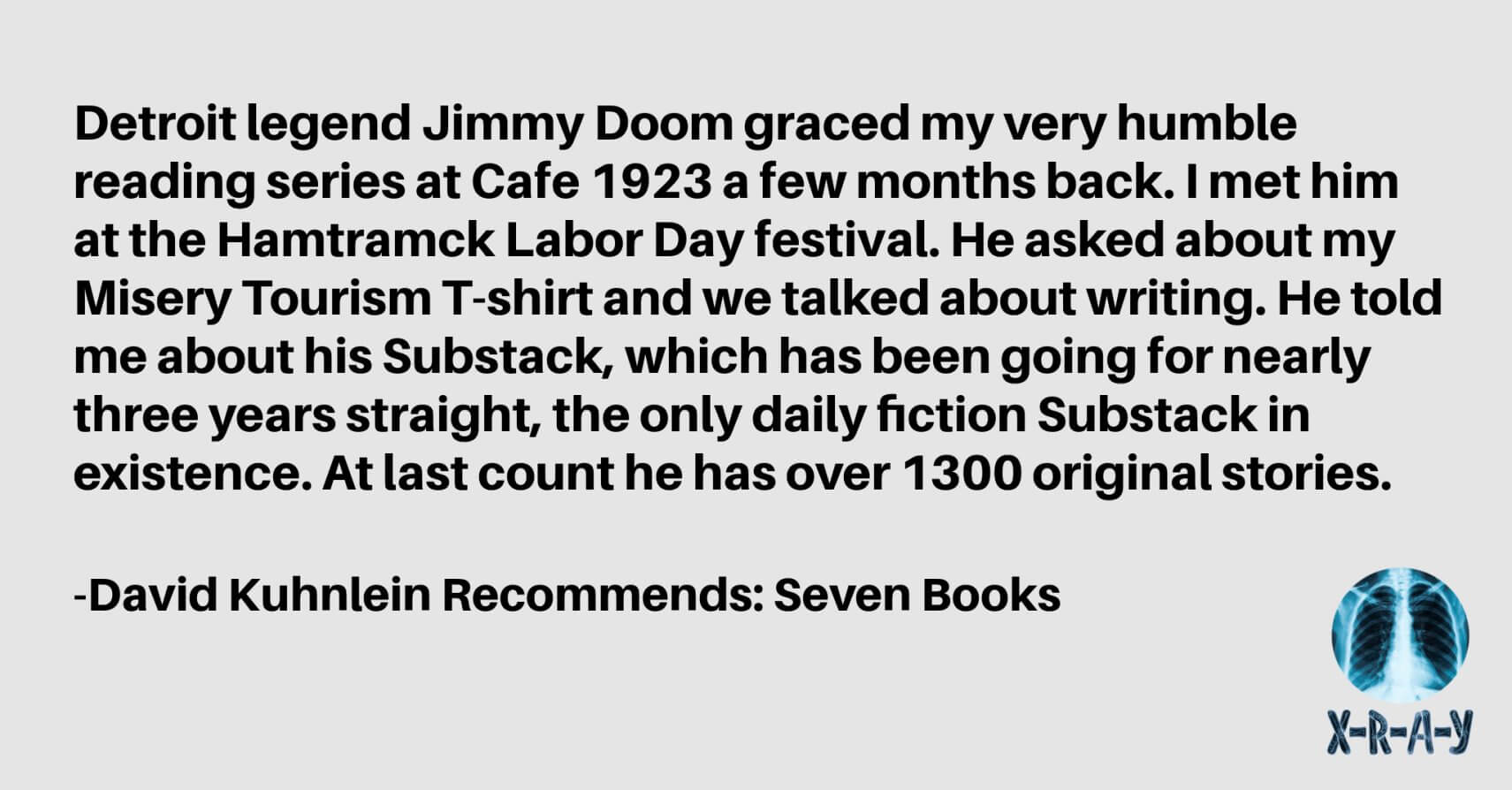David Kuhnlein’s books include Bloodletter (Amphetamine Sulphate, 2024), Die Closer to Me (Merigold Independent, 2023), Decay Never Came (Maximus Books, 2023), and his movie reviews are collected in the zine Six Six Six. He co-edited the horror anthology Lizard Brain (tragickal, 2024) and his book of stories Ezra’s Head (tragickal) is forthcoming. David is online @princessbl00d and his website is davidkuhnlein.com
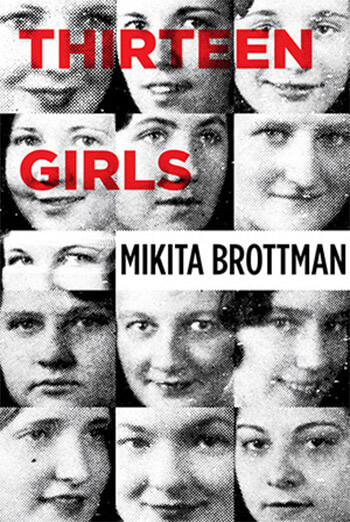
Mikita Brottman, Thirteen Girls (Nine-Banded Books, 2012)
Instead of focusing on the criminal act itself, Thirteen Girls steeps us in its aftermath, in the endless expanse that opens up only after the shock wears off. In an expository essay accompanying the book, Brottman acknowledges that her thirst for true crime is not due to the promise of violence but “the lure of peripheral details.” Small black and white polaroids act as portals into each chapter, shuttling us into the absence left behind by the dead girls: A messy bedroom, a white-sheeted figure atop a gurney, a winding country road surrounded by deciduous trees. These blurry figures behave like Proust’s transportive cookies, a couple details are enough to unfurl entire worlds. These vignettes are not told from the perspectives of infamous killers, but from their adjacent, often ignored, survivors: A grieving mother, a nosy neighbor, a child whose father was dating one of the victims. These stories are told in the comedown, after the blood’s been scrubbed. Voices gathered from the shadowed periphery. If a crack in a teacup opens a lane to the land of the dead, as W.H. Auden’s epigraph suggests, imagine where a fatal wound in a young girl might lead. I enjoy a book that pieces itself together slowly, makes me do a bit of work. Books are best when playful, flirtatious. No one wants everything straight away. One publisher who rejected the manuscript said, “these stories are just too stark and unforthcoming to be satisfying…You are left with a sense of ugly contingency and meaninglessness.” In response, Brottman writes the best lines in the book: “In real life there is no payoff, no closure. The truth about dead girls is this: In the end, they are all forgotten.”
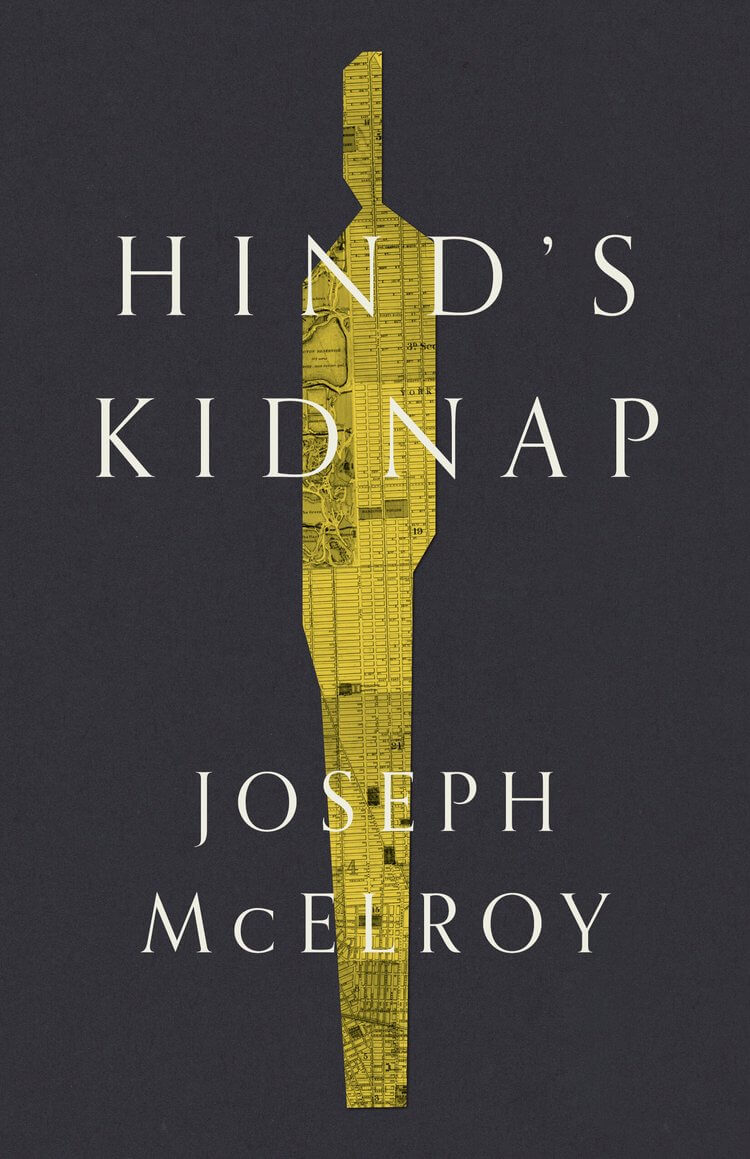
Joseph McElroy, Hind’s Kidnap (Republished by Dzanc Books, 2021)
The first section of Hind’s Kidnap follows Jack Hind, a six foot seven inch man who forgoes his most intimate relationships in order to rekindle the long cooled kidnap of a boy named Hershey Laurel who went missing six or seven years prior. Hind moves nimbly through New York City in a deceptively straightforward narrative. Deceptive because the deeper into the novel we travel, the more beautiful and strange McElroy’s sentences become. Dig deep enough and phrases become fossils — their beauty evoking impressions left behind from previous sentences, phrases, words.
You, like Jack, will find clues glimmering everywhere. In the names of characters, for example: Beecher, Ash, Ivy, Laurel, and Wood, it’s easy to read into the organic growth that these names denote. “There was this constant danger of letting things lure you off course just by being themselves.” Statements spoken to Hind double as leads for the reader. Long-legged phrases spider out with multiplicities of meaning. The figure of the “stand-in” is a common thread weaved throughout, the main insistence of this is that Hind was adopted and was raised by his guardian (a replacement of sorts) as opposed to his birth parents. As readers we grapple for a way in, or a way back, as Hind does: “Hind had again found an opening through the now slag-thick, sea-dense, reverend mugginess of the August heat, toward the case’s last, inner darkness where he could prove…he wasn’t nuts and Hershey Laurel existed trapped.”
This book is both the pointing finger and the moon, even if sometimes we’re stuck looking at the finger. Try to swivel your head before all that beauty bleeds into the background. If instead this book were made of water, I might submerge my head in it and open my eyes to see every tributary at once, its every bank and tide, rather than stay stranded on the island of a particular passage. Alas. At 600 pages, it might seem as if everything has been said, and yet. Hind’s height, the guardian’s obsessive grammar, sometimes it’s a bit over my head, not unlike a pullup bar that, over time, page by page, I work myself up to. And soon I’ll not only be able to see it, but I’ll be stronger for it. Even if there was never anything there to see, or if this complex way of seeing is impossible. The means, an end in itself. The clue, a reason to keep going.
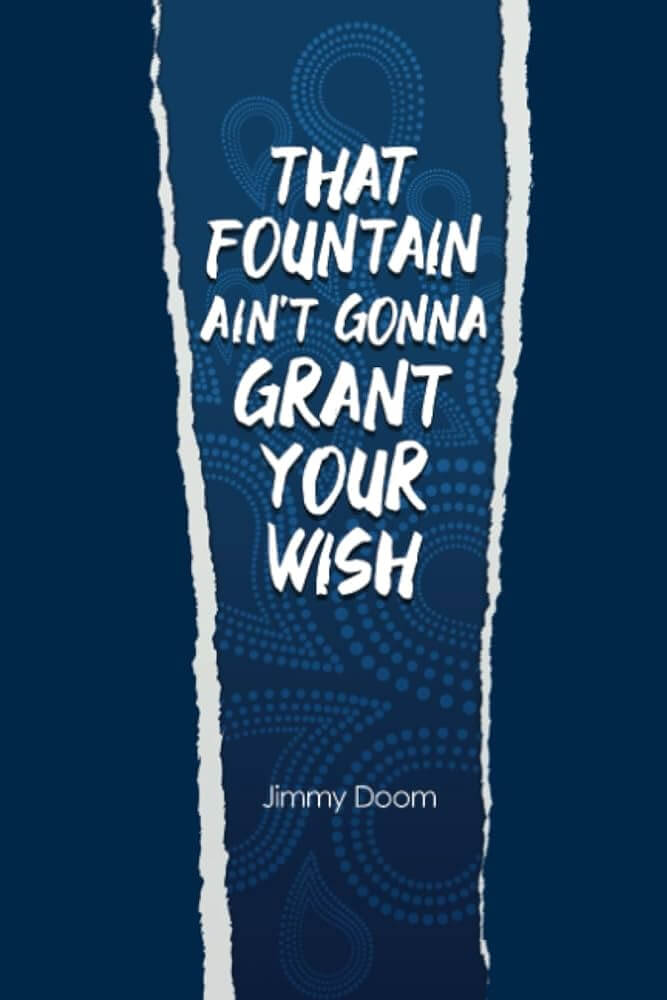
Jimmy Doom, That Fountain Ain’t Gonna Grant Your Wish (Independently Published, 2023)
Detroit legend Jimmy Doom graced my very humble reading series at Cafe 1923 a few months back. I met him at the Hamtramck Labor Day festival. He asked about my Misery Tourism T-shirt and we talked about writing. He told me about his Substack, which has been going for nearly three years straight, the only daily fiction Substack in existence. At last count he has over 1300 original stories. Over an NA beer Jimmy tells me that kids these days worry too much about editing, that stories should be written like Ramones songs, fast and hard, you might miss a few notes but so be it. And sure, out of the thousands of stories he’s written some don’t hit as hard. But honestly, most of them hit. And besides, this book is a collection of his best. One page I’m crying, the next laughing. And that was what it was like listening to him read at the cafe. People tearing up at the end of one story, laughing at the beginning of the next. These are powerful character-driven stories about everyday people. Even better, they all take place in Detroit.
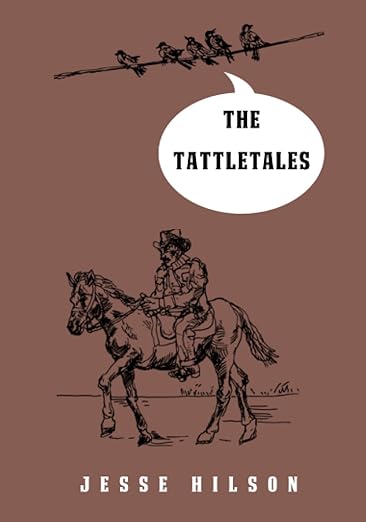
Jesse Hilson, The Tattletales (Prism Thread Books, 2023)
Jesse Hilson’s newest book The Tattletales takes the shape of a western noir. We follow Darryl Winter, a private detective estranged from his kin who unconvincingly says he wants to quit the booze and return to them. He seems content using his job as an excuse to do what he wants, which includes getting a tug job involving a block of wood and some burlap, and spying on his boss’s hot Swedish wife. At the end of both of Hilson’s novels (The Tattletales and Blood Trip), ambiguity abounds. His last pages break bodies past their word count. As cold and satisfying as being on the right end of a gun. Headlights glimmer across the smoking piece. Open roads beckon the shooter. Thankfully, Hilson has hidden a few pieces of the puzzle. Hilson not only publishes genre fiction, but beautiful poetry and delectable criticism. It takes a strong work ethic to read great literature but write genre fiction. The world is just as grateful for Sara Gran and Josh Malerman as it is for their more demanding and difficult counterparts. Sometimes I crave a mental movie. The Tattletales flows clean and easy as a two stroke motor boat on a freshwater river. Hilson’s narrative guides us gently. He’s packed your lunch, but left a couple of bones in the fish. Chew slowly.

Babak Lakghomi, South (Dundurn Press, 2023)
I finished reading South on an airplane traveling to California last weekend for a friend’s wedding. Reading a book while suspended in the clouds, in that dreamy and tenuous space, can amplify novelistic elements in surprising ways. The main character of South is known as B, who willingly takes a journalistic assignment in the south of an unnamed country. He arrives on a hostile oil rig where no one is forthcoming with information except for one character known as the Assistant Cook, although that title doesn’t correspond to his job. No matter, he quickly goes missing. Several people are possibly executed by the State. If any are lucky enough to resurface, they appear fundamentally changed. In one of B’s dreams, the only witnesses to atrocities have nothing where their mouths should be, and their bowl-shaped heads accumulate soup that they can’t eat until it rots. Lakghomi strikes a match between humor and horror. His stark, surreal language illuminates the mysterious peripheries of our earthly lives. “The leaves of the trees were made of ash and the sun rays were grey.” I enjoyed the parallel of B willingly driving to a place where “everyone is always thirsty” and me vacationing in a state that was actually on fire. When my friend and I crossed the Golden Gate Bridge and pointed out the beauty of the fog as it rolled off the hills, that was when we smelled that the fog was not fog but smoke, and we laughed. Riddled with bureaucratic strangleholds and miscommunications, South is indebted to Kafka in the best of ways.
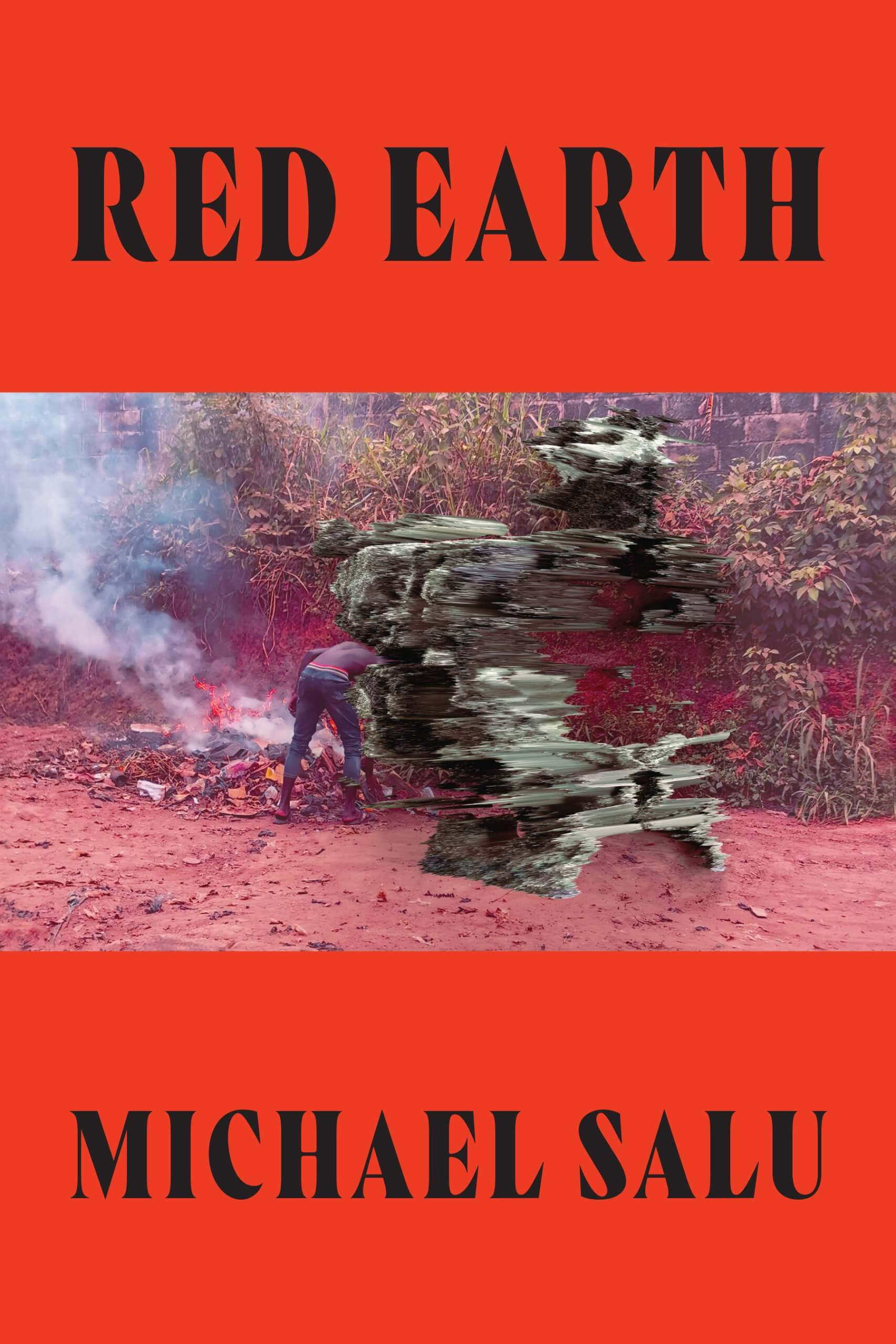
Michael Salu, Red Earth (Calamari Archive, 2023)
“Let us go home/ where no pain can live.” These are the opening lines of what reveals itself to be an experimental talk show. The creative portion of the text can be read in one sitting. The last section is a process essay in which Salu discusses his Red Earth project, a multimodal experiment. A QR code on the back leads us to its digital components: photography, video, et cetera. His essay traces the feedback loops that tangle themselves between culture, language, and art. Salu also links early AI tech back to Asia and Africa and questions the Western insistence on progress and truth (whatever those things might be). For example, Hollywood, AI, or porn might digitally represent humans without scars, striation, or feelings, which not only has the potential to become a horrifying ideal for ourselves, but also “what we covet (or think we covet).” Red Earth is a page-turner, but not in the typical way of a plot-driven narrative. I honestly felt like I was listening to a talk show, not reading a book, so it came naturally to let the rhythm of Salu’s voice wash over me like sound, the way I do when listening to my non-rewindable radio. I’m a fan of Calamari Archive and its corresponding 5cense blog and Sleepingfish magazine (this is me recommending the press as a whole, other recent favs include Math Class, Marsupial, Divorcer…in addition to this, they’re putting Kenji Siratori’s Blood Electric back into print). But with other Calamari titles, I’ve spent more time savoring sentences or pages. Garielle Lutz has labeled the ends of this spectrum as “page-turning” and “page-hugging.” Of course, these are ends of an imaginary spectrum, but Salu has taken a step away from this spectrum entirely. Red Earth is propelled by strong voices (Salu himself says he’s influenced by Dante and epic poetry), rather than by narrative or with a focus on language. We’re haunted by talkative ghosts, who call in to the show to discuss death, history, and violence. “Someone said we live in words,/ but yet with words we chase the indescribable.” Self-annihilating sentences like this mimic the truth-seeking theme of Red Earth, allowing us to momentarily “witness unlit corners of our world ever-present within us.”
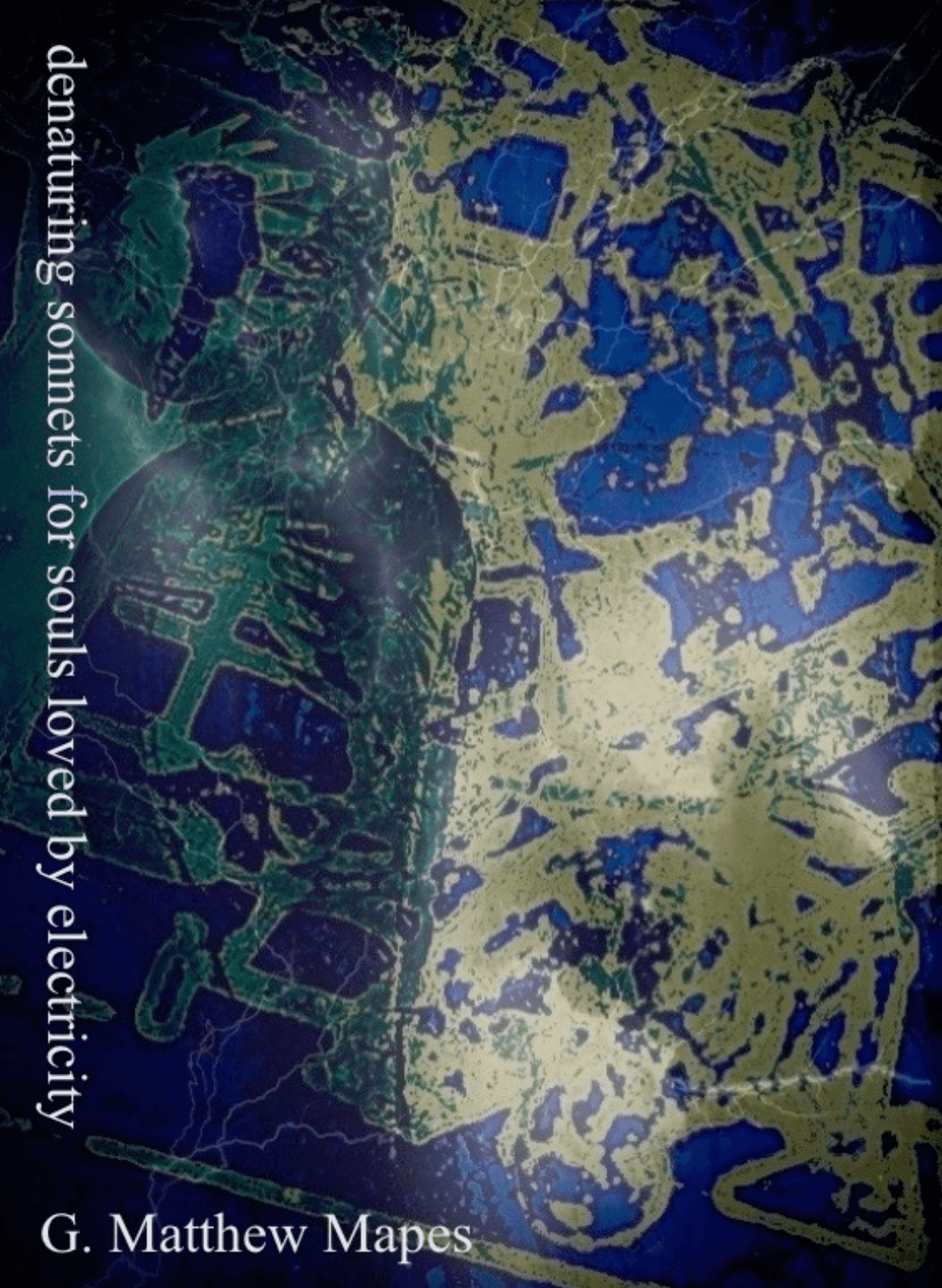
G. Matthew Mapes, Denaturing Sonnets for Souls Loved by Electricity (Independently Published, 2024)
G. Matthew Mapes book of poems Denaturing Sonnets for Souls Loved by Electricity doubles as a grimoire in which enchantment is an end in itself. Like any decent occult knowledge, these poems should be experienced firsthand — do yourself a favor and read them aloud, or even better, find Mapes reading them himself on YouTube. The book’s title is a playful reversal of George Russell’s album Electronic Sonata for Souls Loved by Nature. Russell was a music theorist and composer who, according to Mapes, “had a huge influence on 20th century music and music theory.” Alliteration and repetition in Mapes’s work functions similar to the inner voice of Russell’s piano, dashing itself into the hour-long live album. In Mapes’s poem “abandoning the body” he writes, “kneel on a pillow as you portray your accelerant,” the word pour sonically hidden in the word portray. Not once is fire mentioned in the poem, and yet flames are evoked with words such as “extinguished,” “raspberries,” and the phrase “brighter than 1000 vanities.” I feel commanded by this poem, as its adhering recipient, to both pour and portray my accelerant — I’ve always loved the smell of gasoline. Visualizing myself pre self-immolation, Mapes’s spell is cast. Every word haunts hermetically: “I cloud reaction, cryptically.” His poems strike like matches, one after another, in the dark, in devotional renouncement: “I will not community. I limbo.” Yes, we use words to communicate, but Mapes’s art reminds us of language’s darker, more mysterious nature — that of incantation.
You can find G. Matthew Mapes on social media to obtain a copy of his book. He is not accepting payment.

